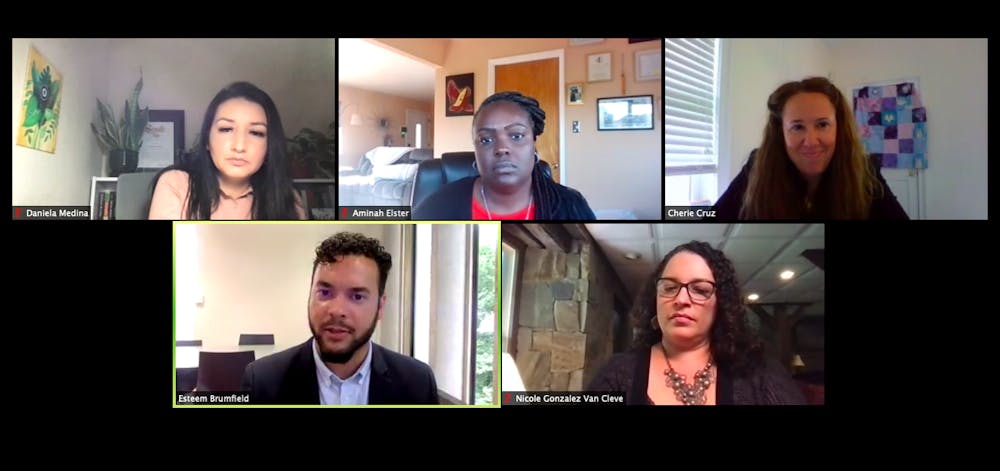The Center for the Study of Race and Ethnicity in America hosted a panel, entitled “Mass Incarceration is a Feminist Struggle: Voices of Formerly Incarcerated Women,” to discuss the intersections of feminism, mass incarceration and prison abolition Thursday. The event launched the Mass Incarceration Lab, an archive led by Associate Professor of Sociology Nicole Gonzalez Van Cleve that preserves oral histories and written testimonies of Americans affected by the criminal justice system.
All three panelists were formerly incarcerated women who now organize against mass incarceration and advocate for the rights of incarcerated individuals. Esteem Brumfield GS, a current master’s of public health student at the University, facilitated the discussion. The group focused on issues that incarcerated and formerly incarcerated women face, like accessing reproductive healthcare, educational opportunities and facing gender-based violence.
“It’s important to note that 86% of women in jails are survivors of sexual violence and 77 percent are survivors of intimate partner violence,” said Aminah Elster, a campaign and policy coordinator at the California Coalition for Women Prisoners. She added that prisons perpetuate this cycle of violence through insufficient medical care, child separation and harsh punishments.
Daniela Medina, a 2021 master’s of social work graduate from the University of California, Berkeley and co-founder and host of the Berkeley Underground Scholars podcast, echoed Elster’s description of the lackluster healthcare provided within prisons. After she was released from Valley State Prison in California, she said, she has had to spend around $10,000 on dental work due to inadequate care during her prison term.
The panelists agreed that solidarity between incarcerated women within prisons is essential to their survival. Medina spoke about the help and care she both received and provided. “I mean, what could we do but support each other?” Medina said.
Cherie Cruz ’09 MA’10, the co-founder of Formerly Incarcerated Union of RI, explained how incarcerated women “jump into action” and pass down knowledge to care for each other. “When I was incarcerated, when I was pregnant, I was fortunate to have my mother there, who already knew this system,” she said.
She explained the responsibility that formerly incarcerated women carry in supporting women who are still imprisoned. “It’s reliant on us to stick together and not to forget those women who are left behind and give them the support they need in the community, to never be abused by that system again.”
The panel also explored how the carceral system continues to shape the lives of formerly incarcerated even after their release. Elster discussed how she gave birth to her son while in jail and how her parents raised him until her release.
“I’m still trying to establish a relationship with my son. I’m trying to get to know him as he’s trying to get to know me, because the whole entire 15 years that I was incarcerated, he was kept from me,” she said.
Cruz, who comes from a family with three generations who have experienced incarceration, spoke about the generational trauma perpetuated by the criminal justice system. “It doesn’t end with just the person who’s behind (bars), but their children and their communities,” she said.
The women also shared how they are working to end these mechanisms of injustice and support individuals impacted by the criminal justice system. Elster spoke about her legislative advocacy, Medina highlighted her commitment to expanding higher education opportunities and Cruz noted her work on initiatives like keeping families together and broadening voting rights for the formerly incarcerated.
With the Mass Incarceration Lab archive in mind, Brumfield asked the panelists to think about how they wanted viewers in 150 years to understand prison abolition.
“Abolition is shifting resources and power to community interventions,” Elster said.
“This is where building community comes in,” she added. Abolition “is about creating, it’s not just about dismantling.”





